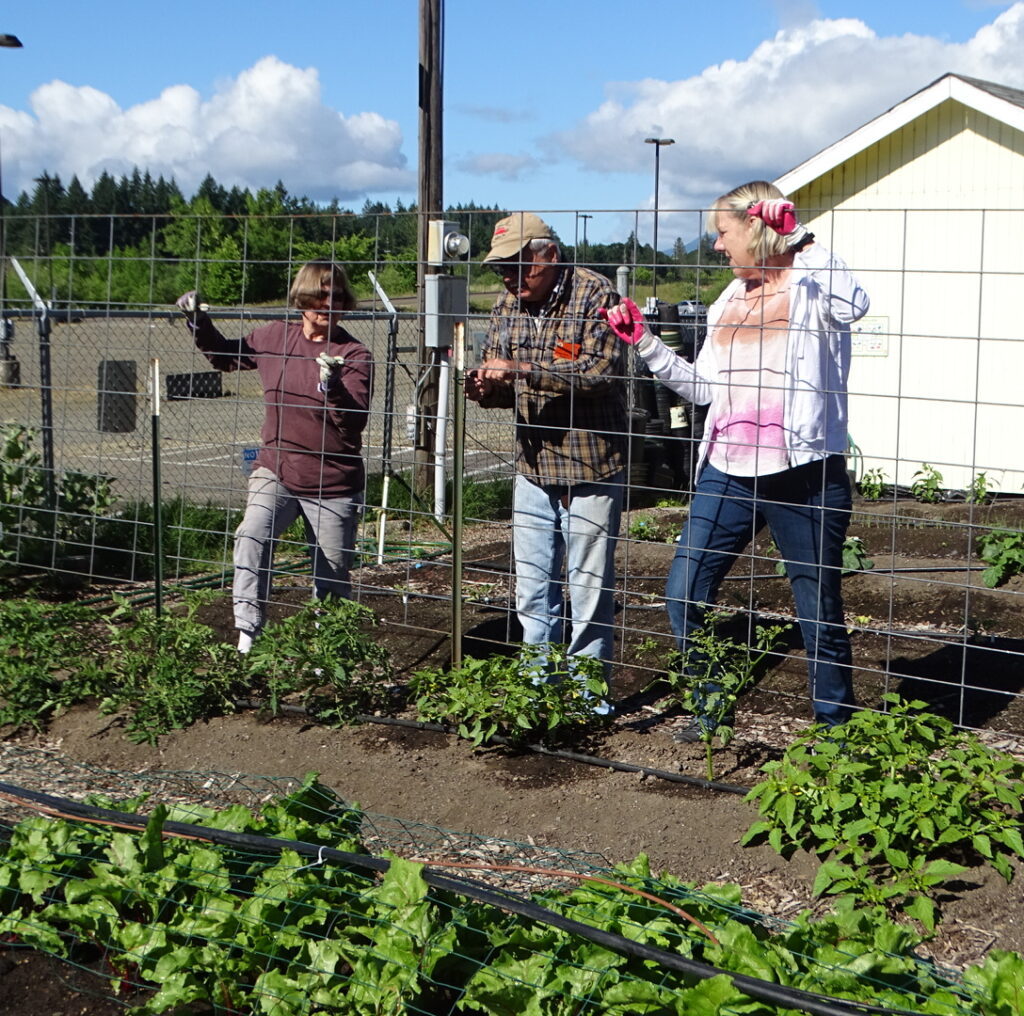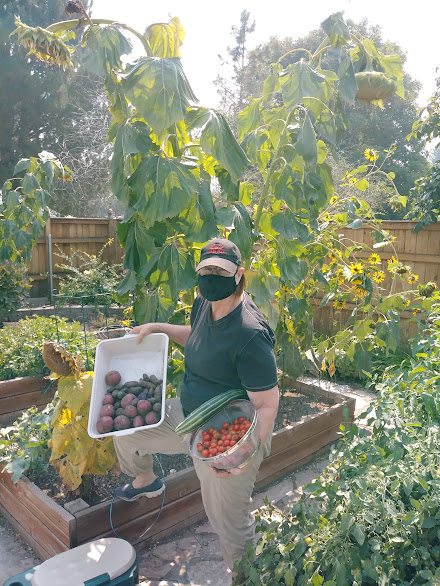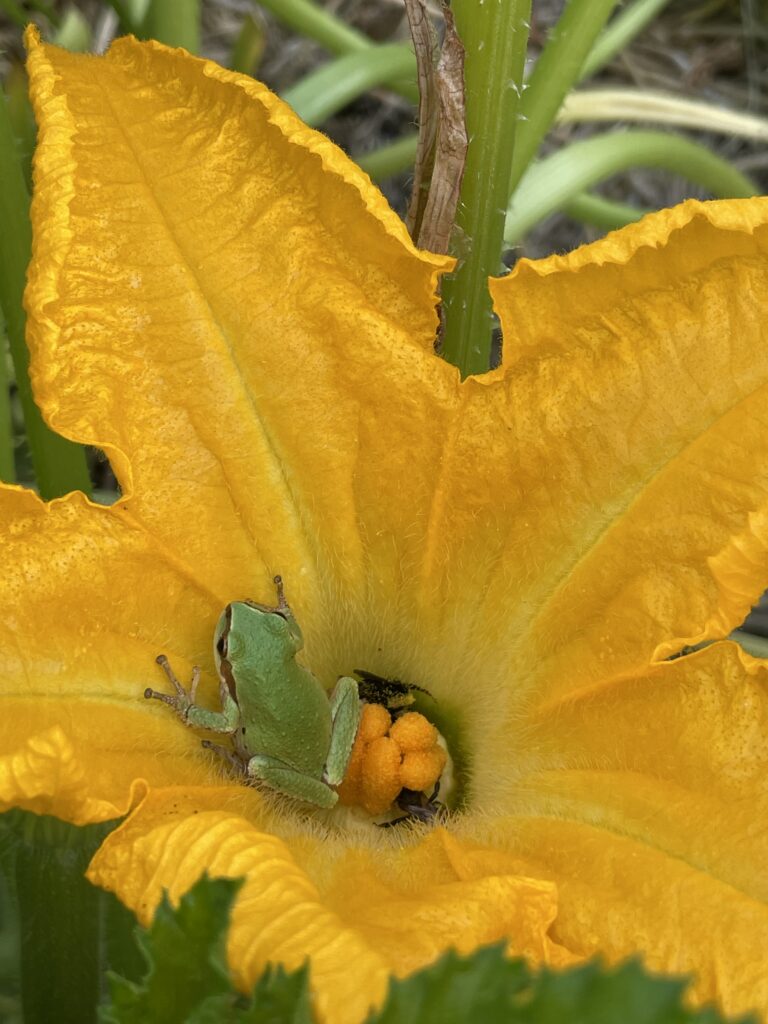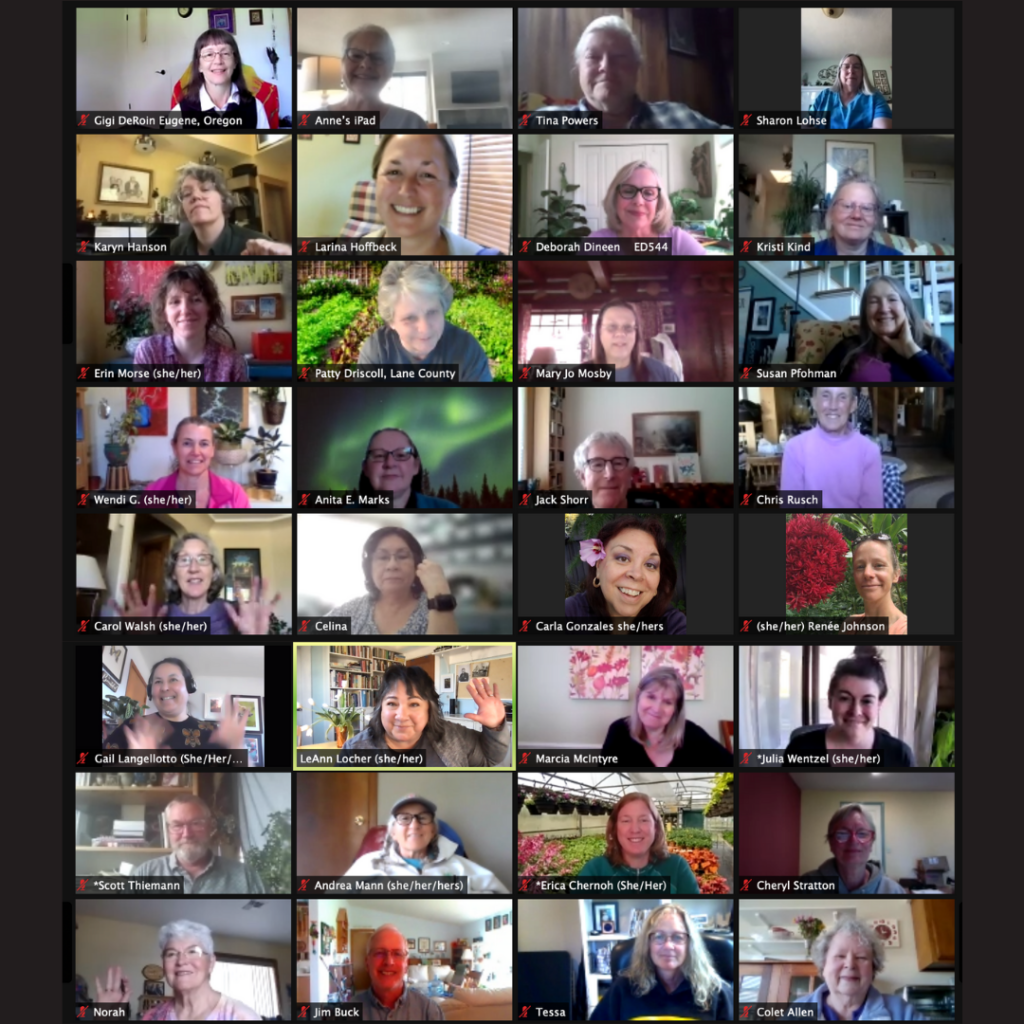
This is the fourth in a series of posts sharing the work of the first cohort of the Master Gardener Diversity, Equity, and Inclusion Taskforce. See overview for general information and background.
…
This subgroup was tasked with understanding who becomes a Master Gardener volunteer, and what is the demographic makeup of the Master Gardener community. To do this, they leveraged available data, from surveys that had been completed in Oregon and other states. The largest and most recent survey results were published by Dorn and colleagues (2018), with nearly 7,500 volunteers and more than 300 program coordinators responding from 35 U.S. states. This survey showed a remarkably consistent lack of racial diversity across the program: 94% of state coordinators, local coordinators, and Master Gardener volunteers identified as white. Most coordinators and volunteers (>70%) identified as female, and 64% of volunteers were retired.
The group also utilized a survey of Oregon’s Master Gardener volunteers that was conducted in 2008 by Weston Miller and Gail Langellotto (Langellotto-Rhodaback and Miller, 2012). This survey also referenced demographic data of the Oregon Master Gardener program, collected by McNeilan (1992, unpublished) and Kirsch and VanderZanden (2001). Interestingly, across all survey years (1992, 2001, and 2008), the racial makeup of Oregon’s Master Gardener volunteers was 95% white. However, there was a shift towards older and away from young Master Gardener volunteers across the three surveys. For example, individuals aged 50 and older represented 65%, 71%, and 74% of respondents in 1992, 2001, and 2007, respectively. Similarly, individuals aged 40 and under represented 16%, 7% and 3% of respondents in 1992, 2001 and 2007, respectively. In 1992, male volunteers made up 42% of Oregon’s Extension Master Gardener volunteer base. In 2001 and 2007, the proportion of male volunteers was 26%.
Contemporary Demographic Data is Needed
Although it was useful for the Cohort I members of the ‘Who Becomes a Master Gardener’ working group to review historical data, they clearly recommended that Cohort II consider doing a new, statewide survey to better understand the current makeup of our Master Gardener community. They suggested that the statewide Master Gardener Program provide assistance with this effort, by paying students to help with survey creation and data analysis. The group suggested that it was important to learn about people’s experiences in the programs, and to conduct exit interviews with volunteers, to understand why people leave.
Ultimately, the subgroup noted that survey data (historical and contemporary) will help us to better drive actions on how to proceed to best support an inclusive and welcoming Master Gardener Program. Data gathered should include quantitative numbers, but also qualitative text that lets folks describe their experiences and perspectives.
Bias Incident Training Exercise
In an effort to utilize the OSU College of Agricultural Sciences CARE document (Community Agreements), this subgroup also created a series of bias incidence scenarios that were piloted in two Master Gardener training programs. The intention of the learning exercise is to foster and support a welcoming place for Master Gardener volunteers and the community in which Master Gardeners interact. Feedback was extremely positive from the two counties that piloted the learning exercise in 2022.
Moving forward, this subgroup recommended that we broadly distribute the learning exercise and develop a Tool Kit to help local program coordinators and Master Gardener Associations understand how to incorporate the learning exercise into annual Master Gardener training and Master Gardener Association Board meetings or retreats. The tool kit would be filled with the bias incidence learning scenarios, and additional resources and suggestions for supporting diversity, equity, and inclusion in all levels of the Master Gardener Program.
Creating an Inclusive and Welcoming Community
In addition to the great work that the ‘Who Becomes a Master Gardener’ subgroup accomplished, they also left a series of suggestions for Cohort II of the Master Gardener Diversity Equity, and Inclusion Task Force. These include:
- Communicate to program leaders, local association leadership, and the OMGA to read and share the posts from this blog. Spread the word that anyone can subscribe to the blog.
- Establish direct lines of communication with consistent messaging, related to the Diversity, Equity, and Inclusion efforts and expectations in the Master Gardener Program.
- Task Force subgroups should share their work with each other, more regularly, to avoid duplication of efforts, and to better support each group’s efforts. We should take and share meeting minutes.
- Find and support change agents in local communities. These individuals can help ensure the focus of diversity, equity, and inclusion is integrated into various events/programming. Apply this lens to all aspects of a local county programs and/or associations. Have designated individuals to act as a change agent at meetings, fundraisers, special events/projects, demonstration garden planning, and more.
- Support a culture of caring, by reserving time at Master Gardener gatherings or meetings to celebrate diversity, equity and inclusion. Ideas include developing and sharing a land acknowledgement, discussing pronoun use, sharing plants and recipes of cultural significance, sharing information about important upcoming DEI events, or highlighting relevant resources that support an inclusive environment.
- The State-wide Master Gardener program, local programs, and/or associations should create a book club focused on topics of diversity, equity and inclusion. This could create a safe space for learning more and discussing literature in a thoughtful manner and considering how this can be applied to MG work. Discussion could be beyond books/literature, such as a post on the Culture of Gardening blog.
- Establish and nourish community partnerships that support equity, inclusion and diversity within the Master Gardener Program and the community. Reach out to other community groups to partner and learn from. Learn from their experience and learn the gritty details needed to establish trust and true partnership. Cohort II could consider adding to the ‘tool kit’ guidance on how to reach out to community organizations, questions to ask, things to consider for mutually supportive relationships.
- Recognize good diversity, equity, and inclusion work within the Master Gardener Program. Perhaps the state Master Gardener program or the OMGA could incorporate this type of recognition in their annual awards.
- Develop resources to support Master Gardener associations in making such changes.
And the final advice from this Cohort I subcommittee, as Cohort II begins their work:
Stay committed
“There is much work to be done. Maintain dialog. Keep at it. Even when things are uncomfortable, continue forward. Being able to talk about uncomfortable things is important. The experience of doing this work and being part of the cohort is valuable, and we are grateful that you are taking up the charge.”
Master Gardener DEI Taskforce Cohort 1 to Cohort 2






















